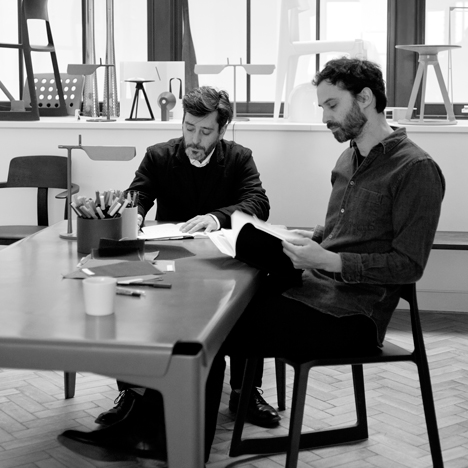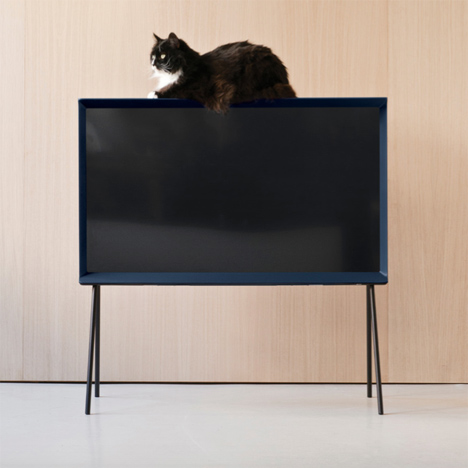
"There's no long-term future for young creative people in London"
Comments update: design duo Edward Barber and Jay Osgerby set the agenda this week on Dezeen after they said London is at a "tipping point" that could lead to the demise of its world-famous creative scene. Read on for more on this and explore our comments page to keep up to date with the latest discussions.

London undone: London's world-leading position as a creative centre is under threat, according to this year's London Design Medal winners Edward Barber and Jay Osgerby, thanks to a "short sighted" government that is "scarred by creativity". Readers largely welcomed the duo's intervention, but some weren't convinced by their arguments.
"So what, there should be special rent rules for creatives?" asked one commenter calling themselves Eastsix. "No one is entitled to a niche in this city; if you want one, go carve it out for yourself. Otherwise try elsewhere and build up to it."
"When I think of London what comes to mind is financial services," added another commenter. "Bespoke furniture and designer lamps will never offer an equal share of gross domestic product (GDP) as finance does."
"There's no long-term future for young creative people in London," countered James. "Creative companies are in danger of losing the cheap workforce they've been taking advantage of for so long." Read the comments on this story »

Dashed dreams: Patrick Schumacher, director of Zaha Hadid Architects, took to our comments section to vent his frustration at having to give up on the Tokyo 2020 Olympics stadium.
"This is the biggest disappointment for us ever," wrote Schumacher. "It's doubly hard to accept when a culture of frank and transparent communication could have avoided this train crash, which we saw coming but were powerless to divert."
"Also, I wish our Japanese colleagues Maki and Ito could have resisted letting their personal jealousy spoil the positive Olympic vibes," he continued. "We might have been able to solve all issues in a supportive collegial environment."
Readers sympathised with Schumacher's comment, describing the situation as "a formidable loss for the advancement of architecture" and "a total shame" respectively. Read the comments on this story »

In a world exclusive interview, Ronan and Erwan Bouroullec explained how they approached the design of their Serif television for Samsung like a piece of furniture – an idea welcomed by most commenters.
"This is fantastic," wrote Fergus Naughton. "In a world of electronic goods where there seems to be a constant further refinement towards the thinner or slicker, the Bouroullec brothers create a beautiful object."
However, one reader expressed concern over over the Serif's aesthetics when other devises are plugged into it.
"Televisions generally have a lot of other junk plugged into them," argued a guest commenter. "This stripped-down design belies the fact that you're going to need a shelf for all the boxes, consoles and wires."
"It doesn't have to be everyone's cup of tea," retorted Amsam, "but it's a strong design idea brought to the barren landscape of TV design." Read the comments on this story »

Rock-paper-phone: Jasper Morrison designed this stripped-back mobile handset as a "liberating" alternative to smartphones, but some commenters questioned its usability.
"If you're going there, then why not revive good old smoke signals?" joked one reader, while Sim added that most people want to use internet-based services, take pictures and listen to music on their mobile handsets.
"Like Jonathan Ive, it seems Morrison is haunted by the ghost of Dieter Rams," concluded Arjay Cee. "Not a bad influence, but if you were truly going to simplify the cellphone, would the reference point be the crowded face of a pocket calculator?" Read the comments on this story »